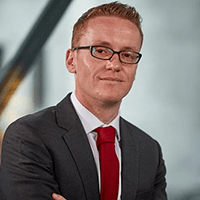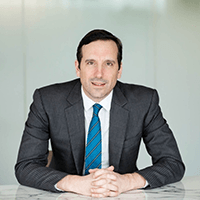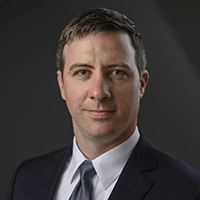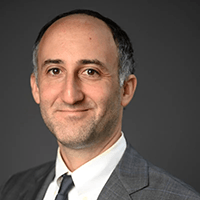‘The sky has not fallen, nor will it fall’ - litigation funders stay stoic in face of economic and regulatory challenges
A lot can change in a year – as the litigation funding market is currently demonstrating in both the UK and US. Last year, the consensus was that the market was ‘exploding’ with activity. Today it is a market in flux, with funders under pressure on all sides.
In the UK, a Supreme Court decision in the PACCAR trucks litigation in summer 2023 cast the viability of the entire model into question; with funders left scrambling to renegotiate vast swathes of agreements.
Across the Atlantic, meanwhile, funders face regulatory threats – particularly from the US Chamber of Commerce. And this regulatory threat looks set to spread to the UK and EU, with Axel Voss MEP and the European Parliament planning to tighten regulation on the industry through proposals that could introduce measures including a cap on the percentage of damages and rules preventing funders from having undue control over the proceedings they fund.

But despite the impending regulatory challenges and the impact of the trucks judgment, which ruled that litigation funding agreements (LFAs) allowing funders to recover a percentage of damages constitute damage-based agreements (DBAs) that are not allowed in collective actions in the Competition Appeal Tribunal (CAT), funders remain positive.
They argue that growth in CAT work in the UK and a marked increase in securities litigation mean there will be no shortage of work this side of the Atlantic. And, in the US, IP and mass torts claims continue to prop up the market according to commentators.
Funders in both jurisdictions optimistically also argue that the countercyclical nature of disputes, combined with ongoing economic challenges such as high interest rates, mean litigation will continue to increase, bringing with it a stream of funding requests.
Addleshaw Goddard disputes partner Richard Wise says: ‘Litigation funding is here to stay. The question is more the manner in which funding will be deployed – single case versus WIP funding, and portfolios or ‘institutionalised’ investments – and how it interacts with the insurance market. It’s going through a stage of evolution at the moment.’

The macroeconomic climate has raised concerns that litigation funding may be seen as a less attractive investment opportunity. As one commentator remarks: ‘why would you go for a high risk, high return option, when you could receive medium returns with low risk?’
The consensus amongst funders though is that as long as funders focus on higher value claims they should be able to avoid the worst of the impact.
As Adrian Chopin at Bench Walk Advisors comments: ‘The available returns for some litigation investments now look a bit less attractive relatively but they’re still well above the market for most traditional assets’, asserting that ‘investors remain quite excited by the returns offered by litigation funding’.
Ellora MacPherson, managing director and chief investment officer at Harbour Litigation Funding, goes further, arguing that less friendly borrowing terms from banks can actually present an opportunity for funders to deepen their links with law firms.
She says: ‘Banks are becoming more conservative in their underwriting facilities which presents an opportunity for funders – we understand the law firm business and market’.

Further influencing the shift towards taking on higher value cases is the PACCAR judgment, which effectively rendered many existing group action funding agreements unenforceable in the UK. The net result is that, for many, the shift to a multiple-based approach to calculating returns means higher value claims will be more profitable to take on, while claimants would be charged more for a lower value claim.
But despite this shift and the additional administrative burden facing funders, most remain bullish, with Chopin commenting that the judgment is ‘slightly more than a storm in a teacup, but the sky has not fallen and nor will it fall’.
Wise concurs, adding: ‘I agree with the funders that the judgment in PACCAR has been overplayed as an existential risk to the funding market. It’s unfortunate that it’s limiting the ability to structure agreements in a flexible way for the benefit of all parties, but most agreements are being renegotiated, and in the vast majority of cases, this is being done amicably.’
New opportunities

A number of features distinguish the funding markets in the UK and US, including the fact that the latter has a greater tradition of both contingency fee arrangements and portfolio transactions. An increase in mass torts work is another differentiator in the US. As MacPherson expands: ‘another dynamic in the US is the prevalence of the mass tort opportunity, where firms make significant use of third-party capital to develop books of cases. Some entrepreneurial UK firms work in this way, but many more could be taking advantage.’
Secondary market transactions, where funders sell portfolios to others, are on the rise in both markets. As Joshua Card at Therium notes: ‘secondary investment opportunities can offer funders an opportunity to invest at later stages of disputes and thereby shorten the duration until the investment’s maturity ‘.
Corey Banks, an investment manager also at Therium, points out that this is a sign of the growing maturity of litigation as an asset class. ‘The growth of the secondaries market and increase in availability of insurance for judgment preservation is a sign of the increasing maturity of the litigation funding market. Most other asset classes have these kinds of features already, and it’s great to see an increase in that area.’
Other trends include not just the funding of cases but the funding of firms. Most notably, Bench Walk funded the launch of former Boies Schiller deputy chair Natasha Harrison’s London disputes boutique Pallas Partners in 2022.

Several funders confirmed that even if they are not actively lending to firms yet, they are likely to consider the move in future. Highlighting the trend, Harbour agreed a £33m committed facility with UK consumer law firm Slater and Gordon in August 2023, while Asertis this year agreed to refinance the debt of class action firm Keller Postman.
But these brand extensions aren’t only restricted to financing activity. Against this more challenging backdrop, funders are diversifying in other ways. As Steven Friel, CEO of Woodsford, expands: ‘some of the more successful players in the litigation funding field have diversified – acquiring or building complementary businesses. Alongside our litigation funding business, Woodsford has grown an ESG and shareholder engagement business, for example. As well as being a success in its own right, our ESG business is a significant originator of litigation funding opportunities, particularly in the high growth area of non-US securities litigation.’
The funding rankings
In these challenging times then, what makes a good funder? Our UK and US funding rankings take a number of factors into consideration including the size and experience within the organisation, the volume and value of cases or portfolios being funded, as well as their profile and complexity.
But other factors also come into play. Transparency of operations is one such factor, particularly at a time of greater scrutiny. As one funder comments: ‘sunlight is the best disinfectant – we’re storing up more issues by not appearing transparent’.

Capital adequacy is another vital consideration. Most funders included in the Legal 500 rankings are a member of The Association of Litigation Funders (ALF); the International Legal Finance Association (ILFA), or both. Both organisations impose capital adequacy requirements on funders, helping firms identify credible funders in the market.
As Friel comments, ‘if a litigation funder is active in England but isn’t a member of ALF, you’d wonder why. Aside from capital adequacy it isn’t onerous to be part of ALF, and you’d question why a funder wouldn’t willingly make a public commitment to capital adequacy and be prepared to have that scrutinised by an outside body’.
Longevity is also a potential indicator of success, although in more difficult economic conditions it may not only be the newer funders at risk of ‘litigation funder Darwinism’.
When it comes to law firms choosing a funder to work with though, speed of execution and flexibility remain important considerations. Firms should be wary of potential time delays triggered by investment committees with multiple layers or unduly lengthy due diligence processes.
Those that fail to take these factors into consideration are unlikely to find long-term success. As MacPherson concludes: ‘a strong relationship between law firms and funders is vital in terms of longevity in the market, you [only] continue to be a leader in the market if you have these.’
UK rankings
- Bench Walk Advisors
- Harbour Litigation Funding
- Therium
- Burford Capital
- Omni Bridgeway
- Woodsford
- Balance Legal
- Augusta Ventures
- Litigation Capital Management
- Asertis
US rankings
- Burford
- Omni Bridgeway
- Parabellum Capital
- Therium
- Bench Walk
- Woodsford
- Delta Capital
- Statera Capital
Industry leaders
-
- Susan Dunn – Harbour Litigation Funding
- Jonathan Barnes – Woodsford
- Ayse Yazir – Bench Walk Advisors
- Adrian Chopin – Bench Walk Advisors
- Dai Wai Chin Feman -Parabellum
- Neil Purslow – Therium
- Patrick Moloney – LCM
- Matthew Blumenstein – Statera Capital
The funders
Asertis (UK: Tier 3)
Asertis specialises in funding commercial disputes, with an emphasis on group actions, enforcement, and insolvency. The practice is adept at providing portfolio facilities to law firms, acting for a raft of leading firms. Key contacts within the firm include Ian Madej, who has particular expertise in asset tracing and cross-border asset claims enforcement. Harshiv Thakerar is also noted, with knowledge of high-value group action claims.
Augusta (UK: Tier 3 )
While it has seen a number of senior exits, Augusta is still viewed as ‘a sophisticated and highly experienced funder with great expertise in a range of areas’ and a wealth of investment experience. The team acts for a range of clients, notably providing funding to Which in a high-profile claim against Qualcomm on behalf of 29 million UK consumers. ‘Very bright and commercial’ Sean McGuiness is widely lauded, along with Mark de la Haye, an ‘intelligent, hardworking, and thorough professional’.
Balance (UK: Tier 2)
‘The team at Balance are highly polished and best in class. In what is still a very new industry, they have established themselves as thought leaders, building a well-experienced and dynamic team.’ Offering funding across a range of commercial disputes Balance is recommended for its speed of decision making and availability of capital. Key contacts include Rob Rothkopf, who has ‘sound and practical judgement’, and Oliver Hayes, who ‘combines a keen intellect with a reasonable and sensible approach’.
Bench Walk (UK: Tier 1; US T3)
‘Bench Walk Advisors are the barometer of excellence in the litigation funding market’ according to one client and are highly active across the UK, US, and Europe. The practice funds cases across a wide range of areas, including general commercial litigation, insolvency, financial service disputes, and class actions. Several members of the team are highly commended, with Ayse Yazir described as a ‘dynamo of the funding industry, and Adrian Chopin a ‘true innovator in the market’. In New York, managing director Stuart Grant and Vice President Nick Sage are key contacts.
Burford (UK: Tier 2; US: Tier 1)
As one client notes, Burford is a ‘long established and credible funder with enormous resources and a cradle to grave offering’, with specific expertise in asset recovery and judgment enforcement work. Insolvency financing expertise is a mainstay of the team, which is commended for its ‘market-leading scale, reach, and experience’. In the US, portfolio financing is a key strength of the practice. Michael Redman is a key contact, taking responsibility for asset recovery and contentious insolvency and overseeing origination. Also of note is Mick Smith, a ‘legend of the funding industry’. In Washington D.C, co-founder Jonathan Molot is integral to the team, along with New York based Christopher Bogart, Aviva Will, and David Perla.
Delta Capital (US: Tier 4)
Delta Capital funds cases internationally, with a portfolio split between North America and global investments. Intellectual property is a focus of the funder, which has significant experience across international arbitration and bilateral investment treaty claims. The leadership of the team sits largely in Illinois, with Christopher DeLise, Drew Kelly, Marty Lueck, and Adam McDonough all Chicago based. Managing director Jonathan Sablone is involved in origination and is based in Boston, with New York-based Ray Tellini adding vast experience in litigation finance. London-based President Peter Cornell is also noted.
Harbour (UK: Tier 1)
‘Harbour retains its position amongst the leading funders, funding interesting cutting-edge cases across a range of areas’ according to clients. The funder routinely offers credit facilities to law firms, notably launching a £150m litigation funding venture with Mishcon de Reya. Susan Dunn is highly regarded across the market and is described by one litigator as having ‘practically invented litigation funding’, and ‘a true force of the legal world’ by another. Managing director Ellora MacPherson is ‘as clever and insightful as they come’.
LCM (UK: Tier 3)
LCM continues to fund leading disputes, including the widely publicised Carillion proceedings that have attracted significant media attention. Third-party asset management is a developing area of focus for the team. Fiona Heyes acts as the head of underwriting for EMEA, with senior investment manager James Foster playing a key role in the team. Key contacts include Patrick Moloney, Timothy Mayer and Hugo Marshall.
Omni Bridgeway (UK: Tier 2; US: Tier 1)
Omni Bridgeway ‘provides support for clients in high-value complex claims, with clever and imaginative funding solutions.’ It has a separate asset enforcement team which adds significant value for clients, particularly in fraud claims. The capabilities of the business continue to expand in both the US and UK, with new offices in Washington DC, Minneapolis, Miami, Chicago, and expansion in New York and London, where it added Giacomo Serra Zanetti. It has a focus on intellectual property.
Parabellum Capital (US: Tier 1)
Parabellum Capital has extensive origination, underwriting, and portfolio management capabilities, with a wide range of single-case and portfolio investments. Class action funding is a mainstay of the team, which is also experienced in insurance and secondary markets. At leadership level, New York-based Howard Shams, Aaron Katz, and David Icikson are names to note. Widely lauded Dai Wai Chin Feman has broad experience in commercial and antitrust litigation and is noted along with Moshe Schwartz and Angela Ni.
Statera (US: Tier 4)
Statera Capital funds single-case investments, providing finance for claims across complex commercial claims for both plaintiffs and defendants. Uniquely, the firm focuses on low-value investments between $500,000 to $4 million. Chicago-based co-founders Andrew Woltman and Chip Hodgkins lead the team, along with head of underwriting Matt Blumenstein, and Washington DC-based Stewart Ackerley, acting as head of origination.
Therium (UK: Tier 1; US: Tier 2)
‘Therium is extremely responsive and creative in finding solutions. Their professionals are deeply knowledgeable and easy to work with.’ Securities, competition, and consumer group litigation are all areas of expertise for a team which leverages its global reach to act across a wide range of jurisdictions. Therium regularly provides funding on group actions, including the high-profile claims against Volkswagen, the Road Haulage Association in Trucks, and European investment banks in the FX cartel case. ‘Industry leader’ Neil Purslow is ‘very bright, experienced, and highly commercial’. Also of note within the team are John Byrne and investment managers Ben Smyth, Fred Bowman, and Chris Wilkins.
Woodsford (UK: Tier 2; US: Tier 3)
In the UK, Woodsford has carved out a niche in the securities litigation space, acting on many of the highest-profile cases including the RSA, Serco, and G4S litigation. London-based Steven Friel, Charlie Morris, and Jonathan Barnes attract praise. In the US, it has a focus on IP and patents work, as well as bankruptcy litigation. Key contacts include Robin Davis, Alex Lempiner, and Dan Kesack.
Author

